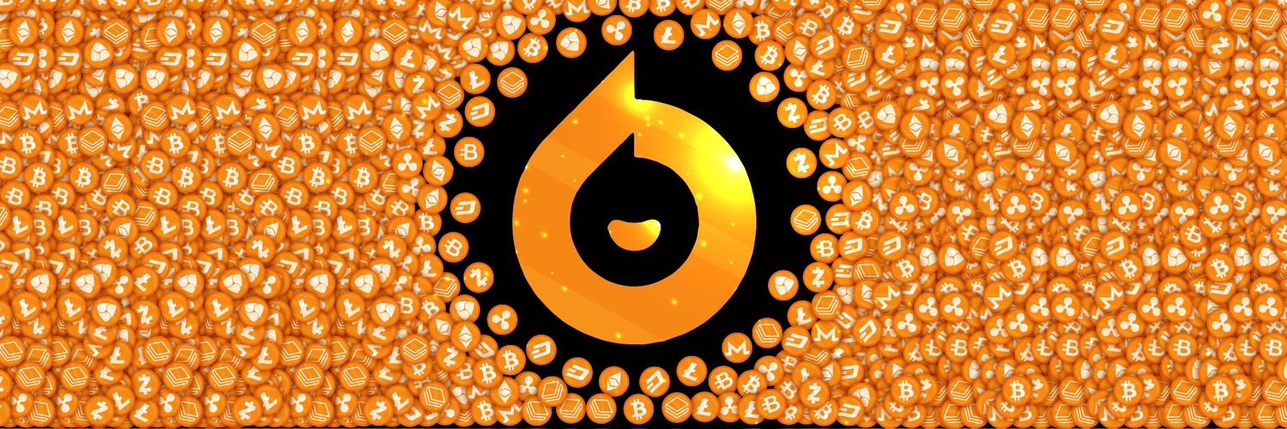
🗞️ Need to catch up on the news? Here's our top 10 from today:
🔸 Nvidia announced they will be building $500 billion in AI supercomputers in the US.
🔹 Swedish MP Dennis Dioukarev formally asked Sweden’s Finance Minister about considering a Strategic Bitcoin Reserve.
🔸 The SEC has postponed its decision on Cboe BZX’s proposal to allow in-kind creations for the WisdomTree spot $BTC ETF.
🔹 EU’s Commissioner for Trade and Economic Security Maroš Šefčovič met with Commerce Secretary Howard Lutnick to negotiate trade during the 90-day window.
🔸 Canada to launch world’s first spot $SOL ETFs on April 16.
🔹 SEC delays staking for the Grayscale spot $ETH ETF.
🔸 Kraken launches commission-free trading for 11,000+ US stocks & ETFs, now live in select states.
🔹 Saylor's Strategy buys 3,459 $BTC for $285.8M, now holds 531,644 $BTC worth $35.9B.
🔸 Mantra investors deny dumping $OM before crash, despite onchain data showing $227M in $OM moved to exchanges ahead of the collapse.
🔹 Google will enforce MiCA-compliant crypto ad rules across Europe starting April 23.
The often mentioned reason behind the sell-off of U.S. Treasuries is the closing of “basis trades”
Felipe Villarroel, portfolio management partner at TwentyFour Asset Management, said in a note that after speaking with government bond trading desks, TwentyFour did not find a clear answer to what caused the sell-off in Treasuries. "The most common reason was the unwinding of 'basis trades,'" he explained, which involves traders having to sell Treasuries to meet margin calls on leveraged positions. The purpose of leveraged positions is to arbitrage the tiny price spreads between Treasuries and Treasury futures or interest rate swaps. The huge volumes involved set off a chain reaction, and suddenly many bonds needed a new home, and buyers were too nervous to catch the falling knife in the most volatile week in recent memory. (Jinshi)
Chainlink Founder Discusses U.S. Crypto Policy and LINK Network’s Powering of Tokenization
In a recent interview with Paul Barron, Chainlink CEO Sergey Nazarov provided valuable insights regarding U.S. crypto regulations and the increasing influence tokenization exerts on the global financial system. Nazarov emphasized that the regulatory speed in the U.S. is accelerating under the Donald Trump administration and that this may have important consequences for crypto markets worldwide.
During the interview, Nazarov acknowledged the challenges faced by regulators, stating, “People in D.C. are starting to understand this. The problem is that they’re moving quickly to catch up, which everyone in the United States and everyone interested in crypto should be very positive about because the U.S. is what’s known as a ‘super regulator’ that is followed by other regulators.”
Nazarov highlighted that despite ongoing deglobalization trends, the U.S. remains a central force in financial regulation. Other jurisdictions, including Dubai, Singapore, and Hong Kong, often align their frameworks with U.S. policies to maintain compatibility with the American financial system. According to Nazarov, key regulatory efforts in the U.S. are currently focused on stablecoin legislation, which aims to establish clearer guidelines for issuance, reserve requirements, and market structure reforms, which seek to define how digital assets are traded and regulated.
One of the new achievements in the history of regulatory clarity was settling the four-year legal battle between Ripple and the SEC, determining that XRP is not a security, a ruling that not only legitimized XRP further but also created precedent for other cryptocurrencies.
In the meantime, the SEC’s Crypto Task Force has also been conducting roundtable discussions around tokenization and asset classification, with CNF reports indicating that prominent industry actors such as Coinbase, Uniswap, and Cumberland have also been invited to participate in more meaningful regulatory dialogues on April 11.
With blockchain-based transactions becoming the cornerstone of modern financial markets, the founder claimed that first-rate tokenized assets will be the norm. He went on to say that Chainlink’s decentralized oracle network is already making this a reality through the delivery of data integrity, transparency, and interoperability.
For context, Chainlink’s decentralized oracle network provides smart contracts with access to real-world data securely. Additionally, its Cross-Chain Interoperability Protocol (CCIP) enables the safe exchange of data between different blockchain networks, and tokenized assets can be transferred from one blockchain to another without any hassle.
Chainlink’s Proof of Reserves ensures that tokenized representations of real-world assets such as stablecoins, commodities, or securities are fully collateralized and are open to being observed in real-time. During the discussion, Sergey also highlighted the effectiveness of the Chainlink Runtime Environment (CRE), which was launched at SmartCon 2024.
CRE supports the free composition of smart contracts from various blockchains and Oracle networks with ease, and thus, tokenized financial products can easily be created in compliance with regulatory requirements. At press time, Chainlink’s native cryptocurrency, LINK, is priced at $12.32, up 10.57% in the past day but down 3.24% in the past seven days.



 最低價
最低價 最高價
最高價 











































